If you’re serious about BBQ, then learning how to control heat on a charcoal grill is a non-negotiable skill. Whether you’re searing a ribeye or slow-cooking ribs, your ability to manage the fire makes or breaks the flavor. In this guide, we’ll break down the essential heat zones, vent tricks, and charcoal placement strategies that turn backyard cooks into pitmasters.
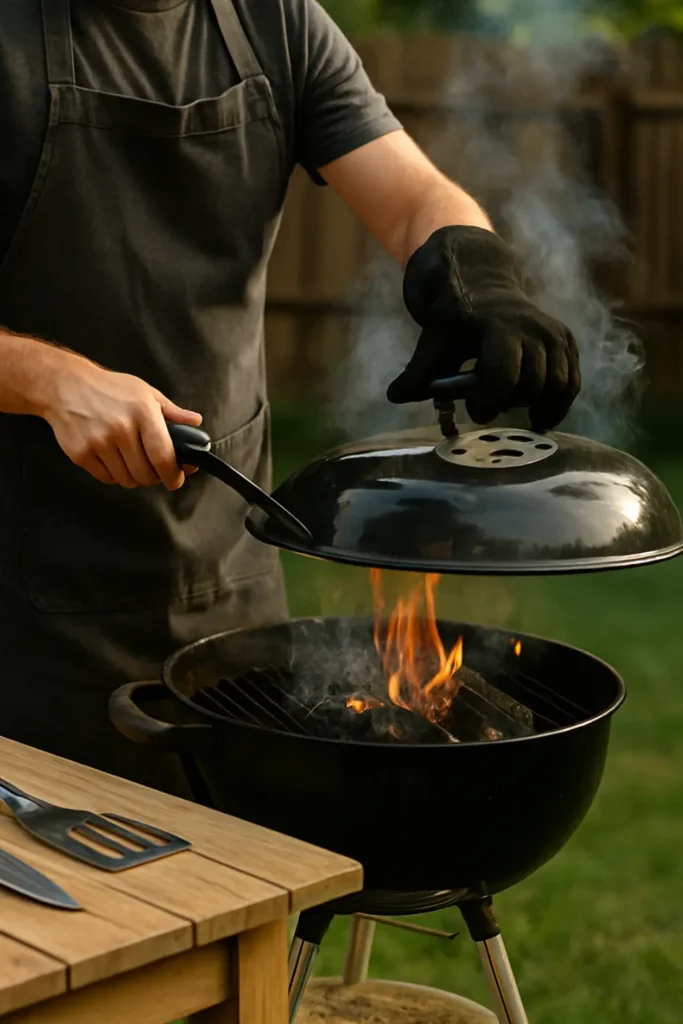
🔥 1. Understand the Two Heat Zones
Direct Heat (Searing)
Coals are piled directly under the food. Best for steaks, burgers, and quick-cook items.
Indirect Heat (Slow Cook)
Coals are pushed to one side, and food is placed on the opposite side. Great for chicken, ribs, or anything that needs time.
👉 Two-zone grilling = control + versatility. Always set this up before you start.
🛠 Pro Setup: Use the two-zone fire method. Place coals on one half of the grill and leave the other side empty.
🌬️ 2. Control Airflow Like a Boss
Your grill has two vents:
- Bottom vent: Controls how much oxygen feeds the fire (more oxygen = hotter fire)
- Top vent (damper): Controls how smoke and heat escape
✅ Keep both vents open to start. Close the bottom slightly to lower temp; adjust top for fine-tuning.
🔥 Pro Tip: If your grill runs hot, closing the bottom vent slightly can bring temps down—don’t shut it all the way unless you’re trying to snuff the fire.
🔄 3. Adjust Coal Amount and Placement
- More coals = more heat
- Spread-out coals = even heat
- Piled-up coals = searing hot spot
🔥 Need a quick boost? Fire up a few coals in your chimney starter and add them mid-cook.
🕓 4. Learn to “Bank” Your Coals
Banking means pushing coals to one side, creating a hot zone and a cool zone. This lets you move food around based on how fast it’s cooking.
Great for managing flare-ups, giving food a break, or finishing thicker cuts without burning.
🧊 5. Control Heat With Water (Optional)
Add a water pan to the indirect side. It:
- Helps stabilize temps
- Adds moisture for slow cooks (like ribs)
- Makes it easier to maintain consistent heat over long cooks
👉 Place the water pan directly over or next to the coals, depending on your setup.
📏 6. Measure Temp Like a Pro
Use a grill thermometer—don’t just trust the lid one. You want temps at grate level, where the food actually sits.
Target Temps:
- High heat: 450–550°F
- Medium: 350–450°F
- Low: 225–350°F
🛑 7. Common Mistakes to Avoid
❌ Opening the lid too often (heat escapes)
❌ Using too much lighter fluid
❌ Blocking vents with ash
❌ Skipping the preheat (yes, you need to!)
🧠 Final Thoughts
Mastering charcoal heat control separates the grillers from the pitmasters. It’s the foundation for perfectly grilled steaks, juicy drumsticks, and fall-off-the-bone ribs.
🔥 Heat control is your ultimate BBQ superpower—nail this, and everything else gets easier.
💬 Got a heat control hack? Drop it in the comments—I’m always learning too!
Want to see this in action? Check out my Ribeye Steak Recipe where heat control makes all the difference.
Frequently Asked Questions:
❓ How do you control heat on a charcoal grill without a thermometer?
You can control heat by adjusting the air vents, using a charcoal zone setup, and mastering the hand test (holding your palm 5 inches above the grate).
❓ Is it better to cook with charcoal grill open or closed?
Keeping the lid closed helps retain heat and produce consistent cooking temperatures—especially for indirect grilling or smoking.
❓ Can you control grill temperature with the vents?
Absolutely. Opening the vents increases oxygen, raising the heat. Closing them restricts airflow and lowers the temperature.

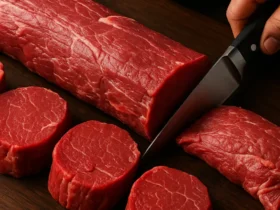

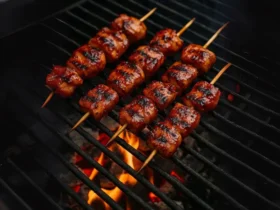
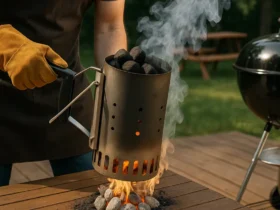
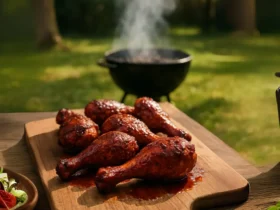
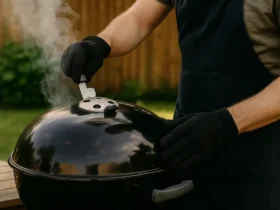
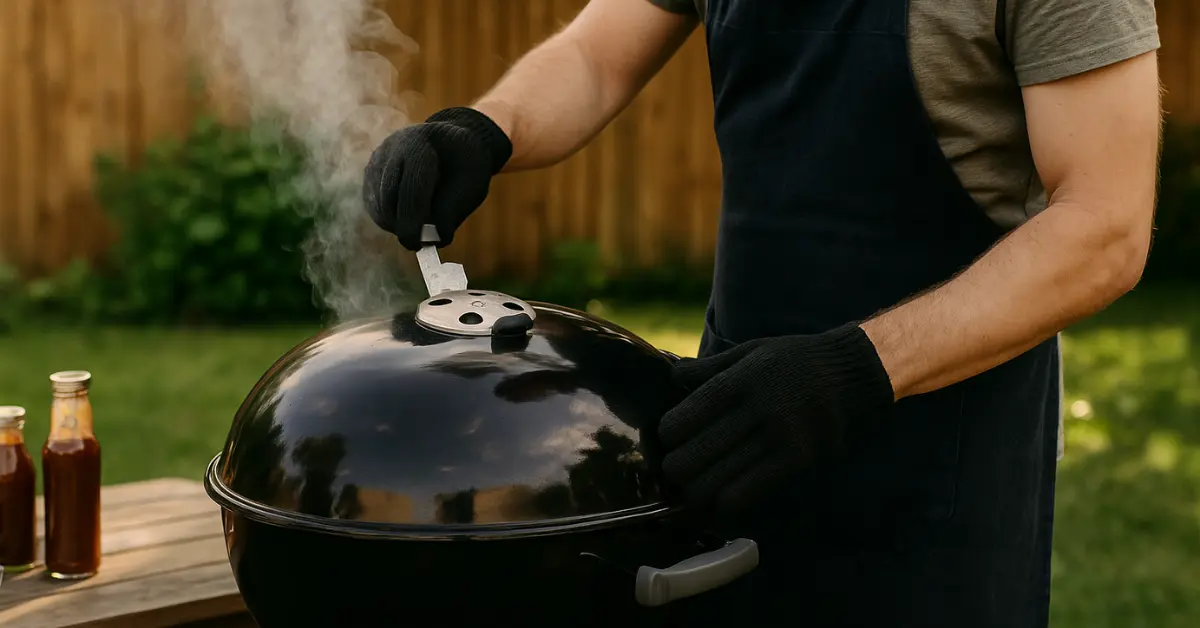
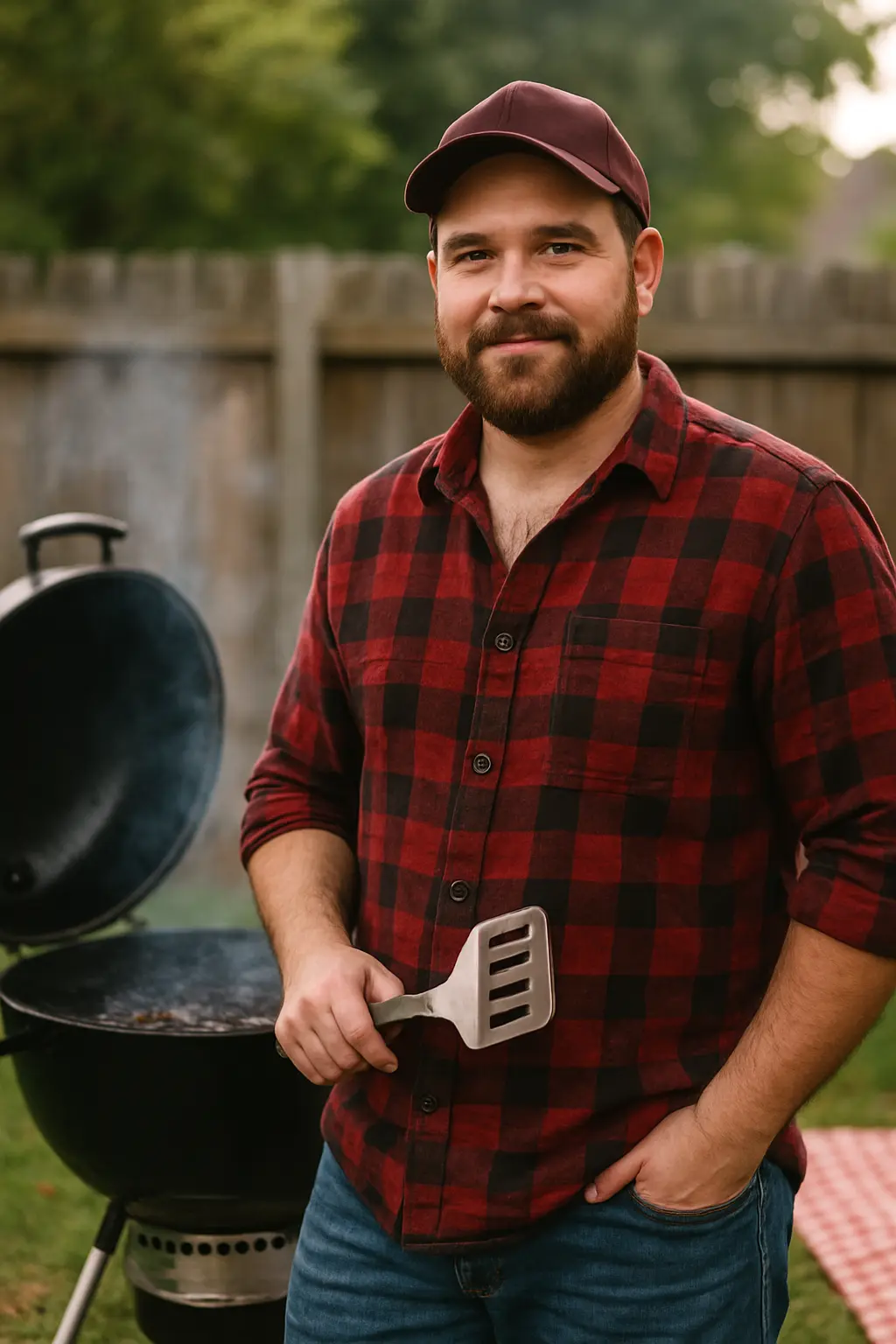
Leave a Reply